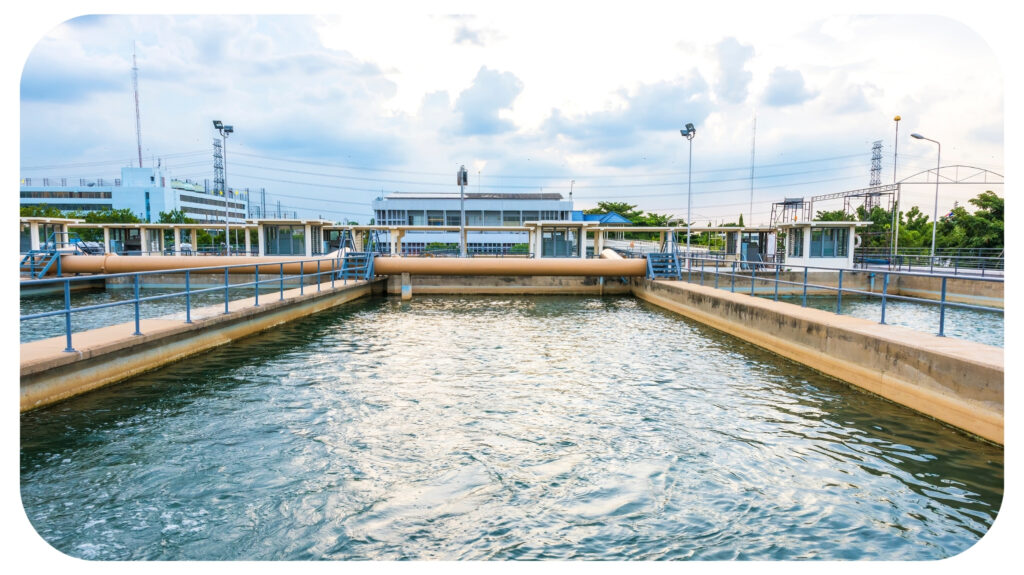Purifying Solutions: Water Treatment and Chemical Supplies
This post was last updated on October 23rd, 2024

Water treatment plays a vital role in ensuring access to clean, safe, and reliable water for various applications, from drinking water to industrial processes.
In this blog post, we delve into the realm of water treatment and chemical supplies, uncovering purifying solutions that enhance water quality, address contamination issues, and support sustainable water management practices.
Importance of Water Treatment
Water treatment is essential for removing impurities, contaminants, and pathogens from water sources to make it safe for consumption and use. Through various treatment processes such as filtration, disinfection, sedimentation, and chemical treatment, water quality is improved, ensuring compliance with health standards and environmental regulations. Effective water treatment safeguards public health, protects ecosystems, and sustains water resources for present and future generations.
Water Contaminants and Challenges
Water sources can be contaminated by a range of pollutants, including bacteria, viruses, chemicals, heavy metals, pesticides, and industrial waste. Addressing water contamination challenges requires comprehensive strategies that target specific pollutants, assess water quality parameters, and implement appropriate treatment technologies. Identifying contaminant sources, monitoring water quality, and employing tailored treatment solutions are key steps in mitigating water contamination risks.
Filtration and Purification Technologies
Filtration and purification technologies play a crucial role in removing particles, microorganisms, and dissolved substances from water. Common water treatment methods include reverse osmosis, activated carbon filtration, ultrafiltration, ion exchange, and UV disinfection, each targeting specific contaminants based on size, solubility, and chemical properties. Leveraging advanced filtration and purification technologies used by commercial reverse osmosis enhances water clarity, taste, and safety, ensuring high-quality water supply for diverse needs.
Chemical Treatments for Water Quality
Chemical treatments are integral to water conditioning and treatment processes, offering solutions for disinfection, pH adjustment, coagulation, and corrosion control. Chlorine, ozone, UV disinfection, alum, and lime are among the commonly used chemicals in water treatment to eliminate pathogens, improve water aesthetics, and optimize treatment efficiency. Dosage control, chemical compatibility, and monitoring protocols are essential considerations when utilizing chemical treatments for water quality management.
Sustainable Water Management Practices
Sustainable water management entails balancing water supply and demand, minimizing water wastage, and preserving water quality through responsible stewardship practices. Implementing water reuse, recycling initiatives, rainwater harvesting, and green infrastructure projects promotes water conservation and reduces environmental impact. Sustainable water management practices contribute to resource efficiency, resilience to water scarcity, and long-term ecological sustainability.
Industrial Water Treatment Solutions
Industrial processes often require specialized water treatment solutions to address unique water quality challenges associated with manufacturing, production, and wastewater discharge. Industrial water treatment encompasses scale prevention, boiler water treatment, cooling tower maintenance, and effluent treatment to ensure compliance with regulatory standards and operational efficiency. Tailored industrial water treatment solutions optimize process performance, reduce operational costs, and support environmental responsibility within industrial sectors.
Emergency Water Treatment Preparedness
Emergency situations such as natural disasters, contamination events, or infrastructure failures may necessitate rapid deployment of water treatment solutions to ensure access to safe drinking water. Establishing emergency response plans, stockpiling water treatment supplies, and training personnel in emergency water treatment procedures are essential preparedness measures. Swift and effective emergency water treatment capabilities safeguard public health and provide critical support during crises.
Monitoring and Quality Assurance
Regular monitoring and quality assurance practices are essential components of effective water treatment systems. Conducting water quality tests, analyzing treatment performance, and maintaining equipment integrity through regular inspections are critical to ensuring consistent water quality standards. Continuous improvement, data-driven decision-making, and compliance with regulatory requirements uphold the integrity of water treatment processes and safeguard human health and environmental well-being.
Integrating Water Treatment in Hot Tub Systems
For hot tub dealers and owners in Salt Lake City, integrating advanced water treatment technologies into hot tub systems is paramount to ensuring a clean, safe, and enjoyable soaking experience. Given the unique water quality challenges in the region, such as mineral content and potential for microbial growth, deploying filtration, and disinfection solutions tailored to these needs is essential. Utilizing reverse osmosis for mineral-heavy water, along with UV disinfection to tackle bacteria and viruses without relying heavily on chemicals, can enhance water quality significantly. Additionally, implementing regular water quality monitoring and maintenance schedules is crucial for the longevity of hot tub systems and the health of their users. By prioritizing effective water treatment, hot tub dealers in Salt Lake City can provide superior products that stand out for their safety, reliability, and compliance with health standards.
Water treatment and chemical supplies form the backbone of clean water provision, supporting public health, environmental conservation, and sustainable development goals. By exploring purifying solutions such as filtration technologies, chemical treatments, sustainable water management practices, industrial water treatment solutions, emergency preparedness measures, monitoring protocols, and community engagement strategies, stakeholders can enhance water quality, mitigate contamination risks, and promote equitable access to clean and safe water resources. Embracing innovative water treatment approaches and collaborative partnerships fosters a future where purifying solutions contribute to resilient, healthy communities and thriving ecosystems reliant on the precious resource of water.
Recommended For You
How Call Centers Can Help Different Types of Industries?
Most Inside
Most Inside offers high-quality recommendations and valuable updates to enhance all aspects of your life, providing premium guidance and enriching experiences.




